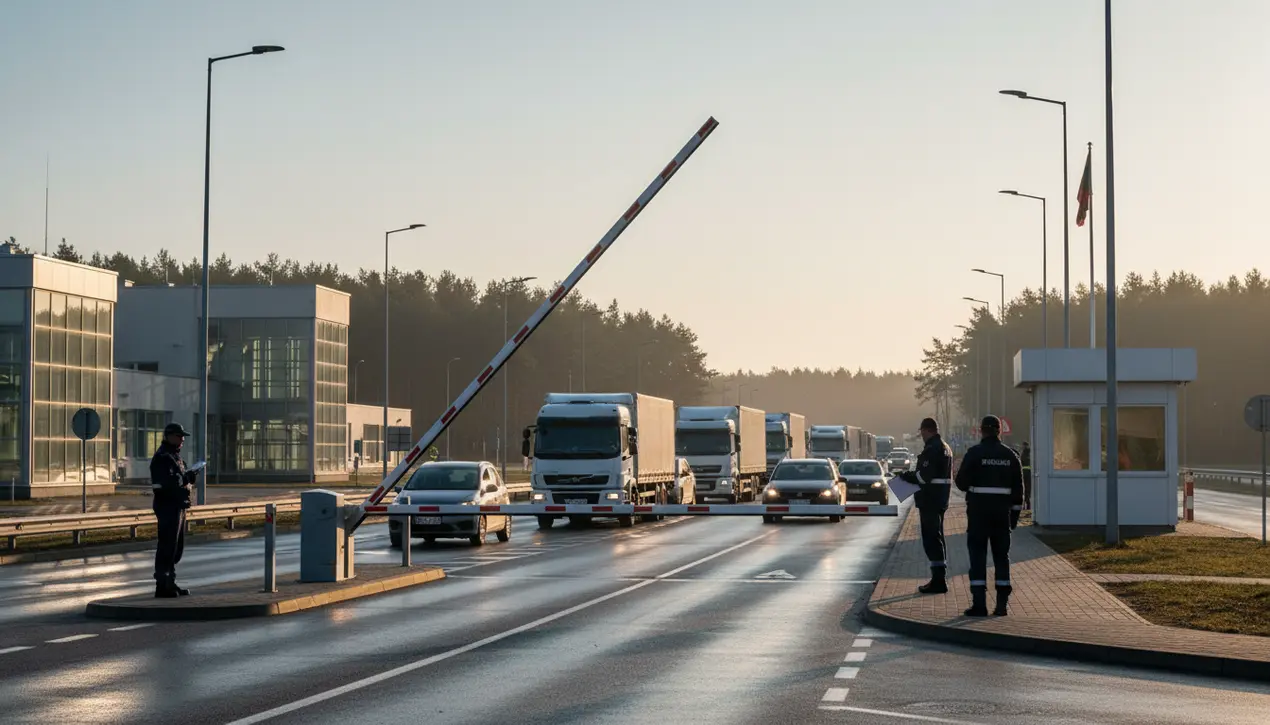
PoliticsdiplomacyBilateral Relations
Lithuania reopens border crossings with Belarus after smuggling tensions.
OL
Oliver Scott
2 hours ago7 min read1 comments
In a move that caught regional observers by surprise, the Lithuanian government abruptly advanced the reopening of its Medininkai and Šalčininkai border crossings with Belarus by a full day, a tactical decision that speaks volumes about the high-stakes geopolitical chess game unfolding along the European Union's eastern flank. This is not merely a logistical adjustment; it is a calculated de-escalation following a period of intense smuggling tensions that had effectively sealed these critical transit points.The situation had escalated into a hybrid warfare scenario, with the Lukashenko regime in Minsk accused of weaponizing migration and facilitating the illicit flow of goods—from sanctioned materials to irregular migrants—as a form of political pressure on a NATO member state. The initial closure was a necessary, albeit economically painful, defensive measure, reminiscent of the EU's broader struggles with neighboring states that use border dynamics as a coercive tool.However, the decision to reopen a day early is a fascinating case study in risk management and signal-sending. Analysts are now parsing this action for its underlying message: is it a response to verified de-escalation from Minsk, a strategic gambit to test Belarusian intentions, or an acknowledgment of the mounting economic strain on local Lithuanian businesses and cross-border communities? The potential scenarios are manifold.A positive outcome would see a resumption of legitimate trade and travel, easing supply chain pressures and allowing border guards to refocus on targeted interdiction rather than a full blockade. The more concerning risk profile involves a resumption of covert smuggling operations, potentially including actors with ties to Russian intelligence services, exploiting the renewed access to test Lithuania's surveillance and response capabilities.This border, much like the Polish-Belarusian frontier, has become a litmus test for the EU's resilience against asymmetric threats. The timing is particularly sensitive, given the ongoing war in Ukraine and the continued alignment of Belarus with Russian strategic objectives.The Lithuanian interior ministry's statement will be scrutinized word-by-word for any concessions made, while security firms operating in the region are likely already adjusting their threat assessments for clients with assets in the Baltics. The reopening, therefore, is not an endpoint but the opening of a new, highly uncertain chapter in a protracted confrontation, where a single day's shift in schedule is a data point in a much larger and more dangerous equation.
#Lithuania
#Belarus
#border crossings
#smuggling
#tensions
#diplomacy
#featured
Stay Informed. Act Smarter.
Get weekly highlights, major headlines, and expert insights — then put your knowledge to work in our live prediction markets.
Related News
Comments
Loading comments...
© 2025 Outpoll Service LTD. All rights reserved.